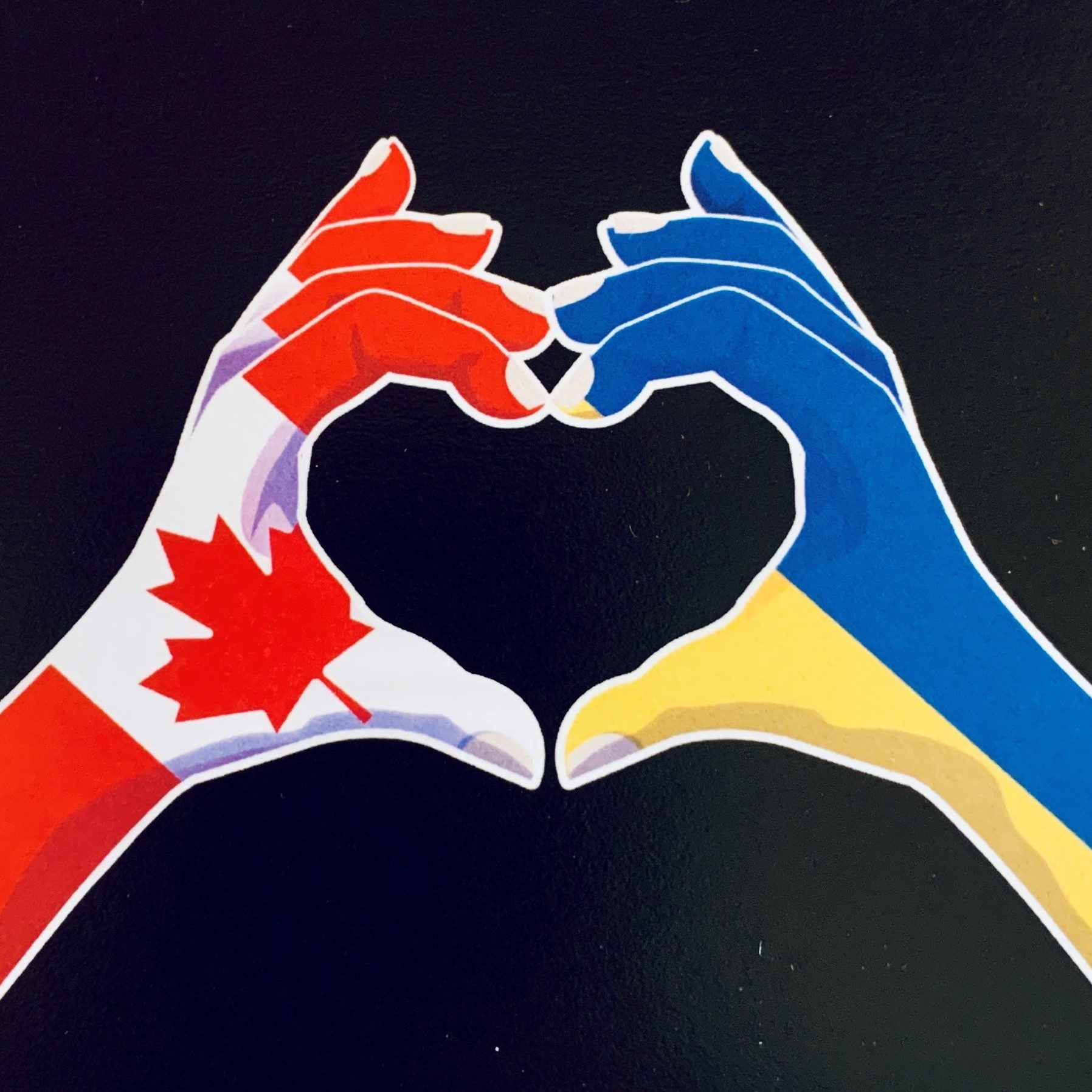
If you’re thinking of gathering a group of friends or family for a good-old-fashioned group effort, here are some ideas to help you organize:
- Who is coming your workshop? Consider ages and skill levels with writing, and with expressing feelings. Some 10-year-olds demonstrate unexpected confidence in writing messages; particularly, when trying to write in Ukrainian. First, we need to practice.
- You need pens, fine coloured markers, crayons. Some fun stickers are nice. Postcards or postcard-size and thickness cards (you can get these at craft stores).
- Need postcards? [not folded cards] We have them. Free to you for this project. Send an email to us (address below) telling us how many people will be writing cards, ages, and when you will be gathering. Be sure to give us enough time to get the cards to you in the mail.
- Have several samples of postcards that you have pre-written so participants can get some ideas. Some could be very simple examples for children. Others could be more sophisticated examples for adults. Tell people they can ‘borrow’ ideas from your examples. And ask them for their ideas. What are you thinking you might write? Is anyone planning to draw something? What? Ideally, your samples should show that it’s okay to KEEP IT SIMPLE. And print only. Not cursive writing as it’s more difficult for Ukrainians to read. Starters: A ‘hello’ (maybe in Ukrainian). Two or three simple sentences. A ‘goodbye’ (again, maybe in Ukrainian). And maybe a simple colourful drawing. Please be sure to read our Tips for Writing your Card + Samples page. If you can, print off a copy for your gathering.
- Once your group is assembled at your kitchen table, or wherever you have gathered, take a few minutes to remind them why they are there. Remind them of the purpose of the cards. Share your examples. Ask them to consider trying to write something in Ukrainian. Either bring several copies of our Ukrainian phrases page to share amongst participants, or direct people to open our Ukrainian phrases page on their cell phones. The act of trying to write in Ukrainian imparts to the Defenders a level of empathy for Ukrainian culture. The effort matters. It doesn’t have to be perfect.
- A little snack is nice.

The greatest obstacle to getting started is the blank postcard. What do I write? How do I say what I feel? That’s why it’s a good idea to bring several pre-written sample cards that demonstrate how you approach the task.
You won’t have a lot of time to write many cards yourself as you might be busy helping participants.
We have found the list of translations to be the most powerful tool. People are quite intrigued by the very different alphabet and form for each symbol. Most worry about ‘getting it perfect’, so need some encouragement to not worry. To just try. This is how I set the stage –
Imagine … you are stuck in a dark, uncomfortable, cold and dirty place. It’s noisy from shelling. You’ve been there for months, and you miss your family and good food and a warm bed. Then, the mail service brings some postcards. And you see that somebody somewhere far away tried to write to you in Ukrainian!
Wow! Imagine, that someone cared enough to try. And even though the Ukrainian bits of writing are a bit wonky – and might make the Defender laugh – it doesn’t matter. The smile for the Defender comes from the connection you made by showing them that you value their struggle to defend and protect their culture. You have tried. For them.
I suggest that people try to write at least one or two phrases in Ukrainian. And don’t sweat it!
Then, all you need is another one or two sentences to express how you feel about their situation. And then, if you are inspired, add a bit of colour. A drawing or a doodle.
Many people, of all ages, are drawn to write “you are heroes” in Ukrainian. Ви – герої. It’s simple to copy and it expresses a genuine feeling. As they peruse the list of translated phrases, they will often add a statement inspired from the translations, but in their own words, about their concern for the Defenders; e.g., I hope you are warm and safe, or you must miss your family.

My sample cards always have some very basic drawings, like a blue/yellow heart, a simple sunflower, or some vines or other design along the edges. Or even, I create a fake stamp for the top right corner. After all, the cards do not need a stamp or an address. Just all text and/or pictures. Sometimes, people search for ideas for something to draw on their cell phone.
Once there are offerings of ideas for filling in a bit of the space, as mentioned above, people get talking amongst themselves about ideas they have. The sharing of ideas at the writing space really gets things going. And then, it’s quiet and creative.
For those who don’t feel confident about expressing themselves creatively, a sampling of motivational, joyful, colourful, fun stickers or washi tapes are welcome.
Please let us know when you host a postcard-writing bee. Let us know if you need cards – FREE! Share some photos that we can include in our newsletter and on our website. You can inspire others!

PostcardstotheFront.Canada@gmail.com
Postcards to the Front (Canada)
P. O. Box 184
Millbrook, ON L0A 1G0
CANADA

Leave a comment